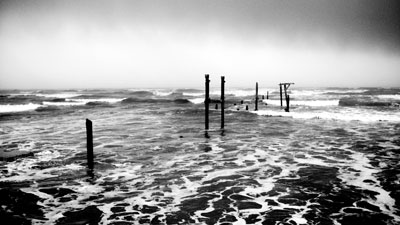All Nonfiction
- Bullying
- Books
- Academic
- Author Interviews
- Celebrity interviews
- College Articles
- College Essays
- Educator of the Year
- Heroes
- Interviews
- Memoir
- Personal Experience
- Sports
- Travel & Culture
All Opinions
- Bullying
- Current Events / Politics
- Discrimination
- Drugs / Alcohol / Smoking
- Entertainment / Celebrities
- Environment
- Love / Relationships
- Movies / Music / TV
- Pop Culture / Trends
- School / College
- Social Issues / Civics
- Spirituality / Religion
- Sports / Hobbies
All Hot Topics
- Bullying
- Community Service
- Environment
- Health
- Letters to the Editor
- Pride & Prejudice
- What Matters
- Back
Summer Guide
- Program Links
- Program Reviews
- Back
College Guide
- College Links
- College Reviews
- College Essays
- College Articles
- Back
Supporting SeaWorld
Marine parks and aquariums across the world are being pressured to change their policies for Orca whales in captivity, and/or retire the whales from the parks. Marine biologists hope to conduct research on the whales living at SeaWorld to ensure their health. Funding for these projects would come from community members paying entrance fees to these marine parks. Tilikum, the largest and literal “killer whale” living in captivity at Orlando’s Sea World has killed a total of three people, yet continues to live in the popular marine park without support or a plan for retirement. Tilikum faced physical and psychological abuse prior to being to SeaWorld Orlando at SeaLand in England. Tilikum got attacked daily by the other whales in captivity with him and officials believe these murders were a result of agitation from living a life that is not fit for an Orca whale. At night Tilikum is locked up in a tiny and dark module by himself until his practice and feeding time in the morning. Tilikum is forced to live with sensory deprivation for most of his life as he is in a dark cage alone, with nothing to keep him occupied. Orca whales need to live in their natural habitat, or possibly a natural simulation of one. The only way this will work is if research projects and new housing projects for Orca whales are funded by the parks in which they live.
Sea sanctuaries are currently the best proposed option to retire these large sea animals. Officials have reported that sea sanctuaries would enable the Orca whales to “‘Experience the currents and swim and dive and interact with other ocean animals’”. (Ziv, “How to Retire a Captive Orca: The Sea Sanctuaries of the Future”, Newsweek 2015). It is important to give these animals a chance to interact with other creatures instead of being stuck in a space alone for their entire lives. Sea sanctuaries would give researchers the ability to research Orca Whales while they are able to live in a safe, interactive and almost natural environment; which in result would be the most efficient way to retire Orca whales in captivity. Tilikum the whale, weighing 12,500 pounds deserves to live in a sanctuary fit for his size. August 2014, Daily Mail located in the United Kingdom published an article stating that they are going to create a “new 50-by-350-foot deep pool set to open...in 2018” named the ‘Blue World Project’. (Associated Press, “Sea World announces plan to double the size of killer whale tanks as ‘Blackfish’ blacklash continues”, dailymail 2014). Sea sanctuaries would enable Orca whales to retire without being set free in an unknown environment. All of the whales that have been freed from captivity and put back into the wild have died because they don’t know how to survive on their own.
It is our job to fund these retirement plans for Orcas by continuing to go to Sea World. It may seem contradicting to support SeaWorld after all of the accusations towards the health of their killer whales, but funding these projects will only lead to better health for the whales for generations. Besides, the best place to pay for the retirement of these whales is the place that took them captive initially. Think of each ticket bought to enter SeaWorld as a donation to fund research and housing projects for these killer whales. Retiring Orca whales in captivity is not an easy task and it has to be handled very carefully. With help from the community we can not only support and fund projects for killer whales across the globe, but we can give these whales a chance to live the lives they deserve.

Similar Articles
JOIN THE DISCUSSION
This article has 0 comments.

I am a senior at Natomas Charter School Performing and Fine Arts Academy. After watching the documentary "Blackfish" I feel passionate about finding healthy ways to retire Orca whales.